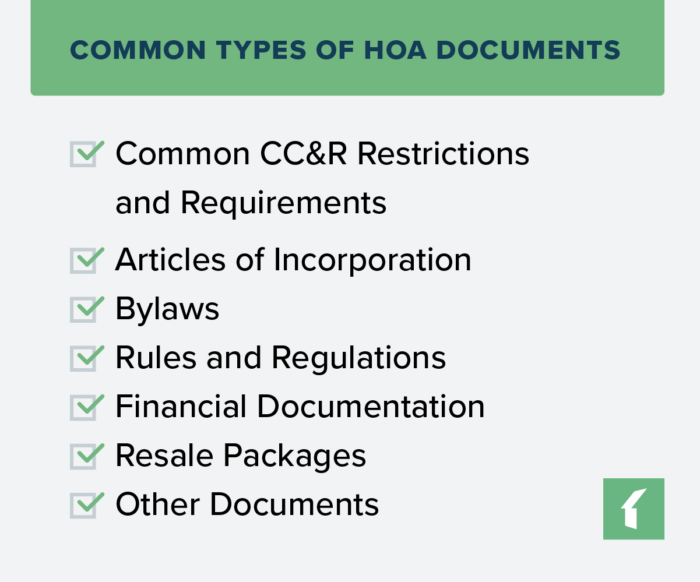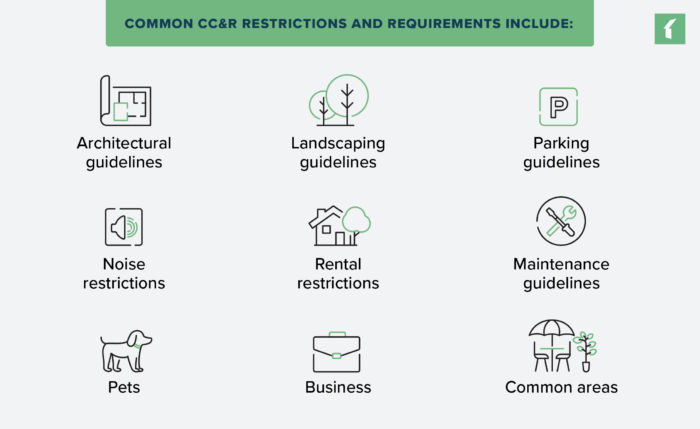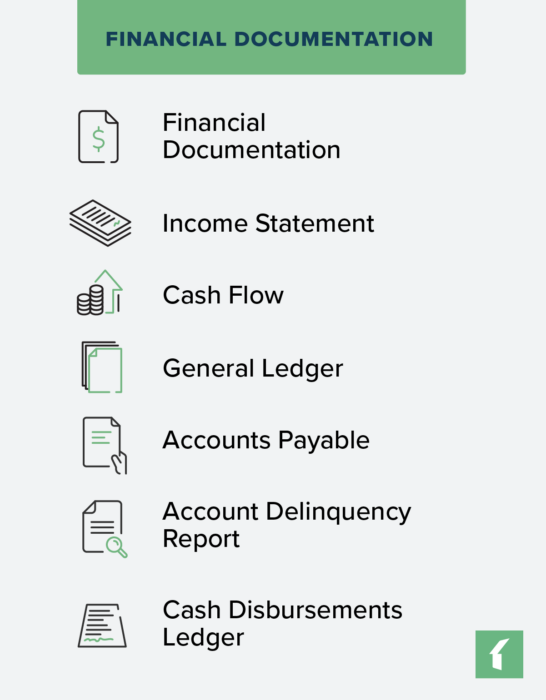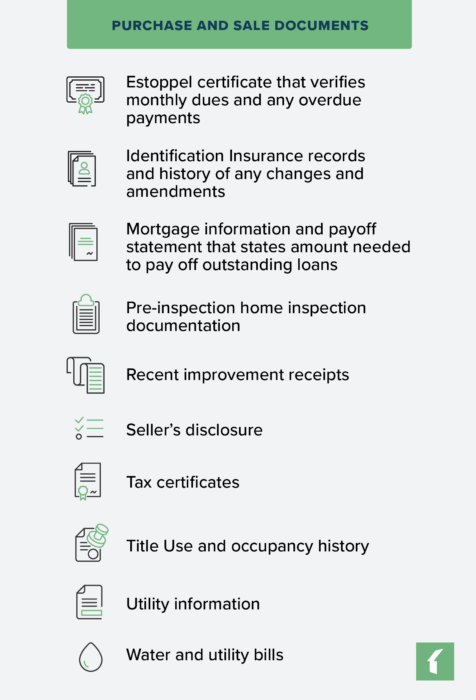Well-organized HOA documents stand the test of time, enabling your board to make meaningful decisions with confidence, speed, and clarity. Knowing what documents you need and learning how to effectively manage them will prevent governing rules from becoming stale, helping you build the foundation of a thriving HOA community.
In this article, we’ll cover what HOA documents you need, a breakdown of every important HOA document, misconceptions regarding HOA documents, and tips on how to effectively manage them with technology.
Let’s get started.
What HOA Documents Should You Be Aware Of?
Let’s start with a quick explainer of the most typical HOA documents. If you already manage HOAs, this will be a bit of a refresher.

Of course, these aren’t the only documents that associations use. For a full list of documents with explanations of each, check out this glossary.
CC&Rs: Covenants, Conditions and Restrictions
CC&Rs specify the homeowner’s responsibilities and obligations to uphold and enhance the value of the HOA community. Although CC&Rs differ among HOAs, they ultimately dictate what activities are and are not permissible in and around their residence. their residence.

Common CC&R restrictions and requirements include:
- Architectural guidelines: Rules and restrictions on the types of home improvements and changes a homeowner can make on their property. They could include rules governing renovations, the paint color of the home or the placement of fences.
- Landscaping guidelines: These rules cover lawn care requirements and tree planting guidelines, among others.
- Parking guidelines: These rules determine where the homeowner can park cars or limit the number of vehicles they can park on the street.
- Noise restrictions: The regulation of noise levels and quiet hours after a certain time
- Rental restrictions: These are imposed to limit the number of rental properties allowed (if at all), and the rules for potential renters.
- Maintenance guidelines: These include requirements on how the property must be maintained, including washing, roof maintenance, and repainting.
- Pets: Restrictions around animal type, breed, size, and weight of animals
- Business: Restrictions around what businesses can be opened and conducted in your neighborhood
- Common areas: Rules establishing how common areas are used, including pools, parks, and tennis courts
The CC&R should detail who enforces the rules and how. You should outline the consequences of breaking the rules, as well, including verbal or written notices, fines, loss of community privileges, and, in the worst-case scenario, a lawsuit.
Articles of Incorporation
Also referred to as “the articles,” the Articles of Incorporation is the official document naming the HOA as a legal entity, defining it as a nonprofit and mutual-benefit corporation. They are typically shorter in length, but may include information regarding voting rights, amendments, and positions of power (directors).
Association Board Bylaws
The Bylaws govern how the HOA board operates and how decisions are made. Usually, bylaws are legally enforceable and legally binding. Typically, they include:
- Titles and responsibilities within the board
- Board membership and voting rights
- How many people represent the board
- How often meetings are held
- How meetings are conducted
- How rules are amended
- How record-keeping and reporting is carried out
Note that some states require that HOAs create and maintain bylaws, so check laws in your area to stay compliant with regulations.
Rules and Regulations
The Rules and Regulations (R&R) document outlines how day-to-day operations are conducted, including common area usage, landscaping specifications, pet policies, and architectural rules.
There will be overlap between CC&Rs and the R&R document, but the R&R should be both lengthier and more specific. Because of the specificity, R&R documents are typically the most amended and heavily disputed.
Financial Documentation

Financial documentation enables the HOA to operate transparently and accurately. They establish the financial status of the HOA, documenting the cash coming in and out. These documents include:
- Balance Sheets: These show overall net worth of the HOA by documenting its assets, liabilities, and equity.
- Income Statement: Also known as the profit-loss statement, it shows all income and expenses throughout the accounting period.
- Cash Flow: This shows where income is coming from and where the money is being used.
- General Ledger: A record of all financial transactions and receipts
- Accounts Payable: The outstanding debt of the HOA
- Account Delinquency Report: Tracks all late or delinquent payments by homeowners
- Cash Disbursements Ledger: Details where the HOA’s spending goes
Resale Packages
A resale package provides all the legally necessary information and disclosures a buyer needs before purchasing a property, including a resale certificate and governing documents. The preparation of the resale package often comes at a fee, depending on who is preparing it.
Most standard resale packages include the documents above, along with:
- Insurance Declaration Page
- Resale Certificate
- Reserve Report
- A Record of Association Resolutions and Policies
Purchase and Sale Documents
There are also specific purchase and sale documents if you’re agreeing to buy or sell an HOA property, which you can learn more about in our guide on the topic. These documents include:

- Estoppel certificate that verifies monthly dues and any overdue payments
- Identification Insurance records and history of any changes and amendments
- Mortgage information and payoff statement that states amount needed to pay off outstanding loans
- Pre-inspection home inspection documentation
- Recent improvement receipts
- Seller’s disclosure
- Tax certificates
- Title Use and occupancy history
- Utility information
- Water and utility bills
Other Documents
HOAs may have additional documents that do not carry any weight on how the association operates, but provide insight into how well (or not well) the HOA operates. These kinds of documents may include board meeting notes, minutes, board election notices, directories, insurance policies, rental documents, and legal documents.
6 Misconceptions About HOA Documents
Now that we’ve covered all the documents you need to successfully run your HOA, let’s look at the most common misconceptions about HOA governing documents that you may not have known about.
Myth #1: All HOA Documents Are Created Equal
What happens if a dispute arises and two HOA documents have conflicting language? HOAs can establish a hierarchy of governing documents to indicate which have precedence over others. Conflicts in provisions are very common, which is why it’s important to clear any rules that may be interpreted differently amongst the board.
Here’s the typical HOA document hierarchy:
- Federal and state laws and statutes
- Recorded map, plan, or plot (how land is divided)
- CC&Rs
- Articles of incorporation
- Bylaws
- Rules & regulations
- Other HOA documents
Myth #2: HOA Management Requires a Lot of Paperwork
While we’ve listed a ton of different documents required to manage an HOA, you can minimize the time spent keeping them in order with the right technology. Enforcing rules and regulations, keeping track of finances, and addressing resident complaints can all be simplified with an HOA management software.
Buildium, for example, lets you organize and share an unlimited number of documents with board members and owners , including everything from financial details and bylaws to meeting notes and minutes. You can also use Buildium’s mobile app to access and send important files and updates from any device.
Myth #3: Managing HOA Documents Online is Unsafe
Writing and drafting HOA documents is not enough—you have to ensure they’re stored securely in one, easily accessible place. Having an effective file management system that is both encrypted and password-protected allows you to keep your HOA documents online, stress-free.
Taking things digital with HOA property management software can also help automate a lot of the documentation, including bookkeeping or logging and tracking violations. The leading software solutions will have clear security policies, so you can confirm that your HOAs sensitive information will stay well-protected.
You can even use specialized software such as HomeWiseDocs to speed up how you process documents and share information when selling or refinancing HOA properties.
Myth #4: Association Managers Have No Say in HOA Rules and Documentation
As trusted partners, association managers ultimately play a critical role in upholding the HOA’s regulations. It’s an imperative so that managers can effectively advise the board on compliance with HOA rules and enforce them. They may also provide input on document management, although the final decision lies with the HOA board.
Myth #5: Keeping Document Management Out-of-Sight, Out-of-Mind for Board Members Is a Good Idea
Building on the previous point, association managers should be responsible for handling the day-to-day document management and establish an effective system to organize them. The process—and the tools you use for management—should be transparent and accessible to all board members, so they can reference the necessary documents quickly should a conflict arise.
Myth #6: Handling HOA Documents During a Purchase, Sale, or Refinancing is a Huge Hassle
No two HOAs are created equal, which can make the process of purchasing, selling, or refinancing extremely daunting. HOA agreements can be up to 300 pages long, and how these agreements are organized provides insight into how well the HOA is run.
A tech solution like HomeWiseDocs makes the complex and time-consuming process of organizing key documents easy, by providing a system that simplifies the processing, delivery, and record retention to streamline an otherwise time-consuming part of association management. A product like HomeWiseDocs can help you:
- Fulfill all order requests
- Answer all requestor questions
- Coordinate order delivery
- Handle payments
- Monitor document expiration timing
- Guarantee order deadlines Identify orders with missing or expired documents
This ultimately reduces turnaround times while ensuring you stay compliant with regulatory requirements.
By combining a solution such as HomeWiseDocs with software to help manage the rest of your HOA operations, you can automate redundant tasks and streamline your day-to-day operations. The right combination of HOA software can make a significant impact in three key areas: communication, accessibility, and process automation.
Create Clear Lines of Communication: Establishing clear lines of communication with all your key stakeholders is key to running a smooth HOA operation. Automated communication tools and communication portals can help facilitate seamless communication through chat, email, text, and phone calls with homeowners, residents, and board members.
Make HOA Documents Accessible: Providing board members access to critical HOA information in a fast and secure way is crucial when managing an HOA. The right HOA management technology can allow you to manage permissions to financial reports, bylaws, policies, meeting minutes, and more.
Automate the Automate-able: Whether it’s tracking income and expenses or tracking violations, HOA technology can streamline your operations from the ground up. Easily create and maintain budgets, improve financial planning, and instantly get the data you need to improve your business.
Keep these three areas in mind when searching for the right software. If you’re ready to start managing your HOA documents more efficiently, take a look at what HomeWiseDocs has to offer
Read more on Accounting & Reporting
